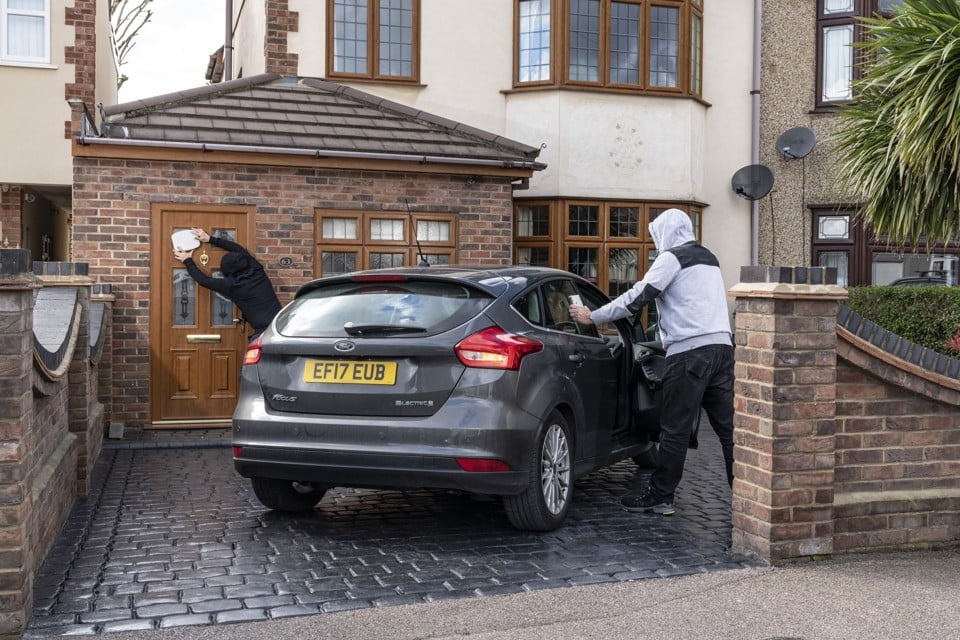Possession or distribution of electronic devices used to commit vehicle theft will be banned, carrying a maximum sentence of five years.
Previously, prosecution for handling these devices, which are used by criminals in 40% of vehicle thefts in England, was only possible if it could be proved by police that they had been used to commit a specific crime.
Under the new legislation, the burden of proof will now instead fall on the owner to prove they were using the device for a legitimate purpose, to avoid being prosecuted.
Minister for policing, crime and fire prevention, Dame Diana Johnson, said: “We are aware of the real concerns people feel with the use of these electronic devices being so prolific.
“This is why we are introducing new laws focused on tackling this issue at source.
“These new laws will prevent these devices from getting into the hands of thieves and organised crime groups.”
The Department for Transport (DfT) will also continue to work closely with the National Police Chiefs’ Council, including supporting its National Vehicle Crime Reduction Partnership which brings together the police and manufacturers to clamp down on vehicle crime.
Acting Chief Constable, Jenny Sims, National Police Chiefs’ Council lead for vehicle crime, welcomed the announcement. “These devices have no legitimate purpose, apart from assisting in criminal activity, and reducing their availability will support policing and industry in preventing vehicle theft which is damaging to both individuals and businesses.”
The most common way theft from a vehicle – or the theft of the vehicle itself – occurs is with the use of these electronic devices, with keyless repeaters and signal amplifiers being used to scramble the signal from remote locking devices.
According to the 2022 to 2023 Crime Survey for England and Wales, an offender manipulated a signal from a remote locking device in 40% of thefts of vehicles.
There were also 732,000 incidents of vehicle-related theft in the year ending September 2024.
The Metropolitan Police Service estimates that, in London, signal jammers are used in approximately 60% of vehicle theft.
A significant proportion of vehicle theft is driven by organised crime groups, as there is a demand for stolen vehicles, which means this is a highly attractive and lucrative area for criminals to gain profit.
Organised criminals are constantly trying to find ways to overcome security measures on vehicles, even in the latest models, by exploiting vulnerabilities in vehicles and new technologies.
RAC head of policy, Simon Williams, said: “With Government statistics showing an average of 370 vehicles being stolen every day, outlawing the possession and distribution of signal jammers cannot come soon enough and we welcome the government’s action on this.
“Having your car stolen is not only a violation, it causes massive amounts of stress and inconvenience as well as higher insurance costs for the individual concerned and drivers generally.”
The new legislation was also welcomed by AA president, Edmund King. He said: “This is a positive step, and these tougher sentences should make would-be thieves think again before stealing cars.
“As fast as vehicle technology has evolved, thieves have always tried to keep pace and beat the security systems.
“Relay theft and signal jamming is all too frequent and these measures will give police forces more opportunities to tackle car crime.”
Thatcham Research's specialist security team has worked with the Home Office to shape vehicle theft legislation, ensuring it effectively targets criminal tools while protecting legitimate automotive industry devices.
Richard Billyeald, chief research and operations officer at Thatcham Research, who collaborated with the Home Office on the Bill, said: “This legislation addresses a critical vulnerability in the current vehicle security framework.
“By criminalising the possession and sale of these devices, we're raising the stakes for criminals while protecting the legitimate automotive sector.
“However, vehicle security requires a multi-faceted approach of which device regulation is a part.”
The latest insurance industry data shows motor insurance claims totalled a record £11.7 billion in 2024, and the average vehicle theft claim reaching £11,200 in the final quarter of 2024.
“Vehicle manufacturers have made significant strides in improving security over the past three decades, effectively shifting vehicle crime from low-level criminals to organised gangs,” Billyeald continued.
“Our focus is now on disrupting theft pathways and devaluing stolen assets through technological innovation and cross-industry collaboration.”
Thatcham Research's ongoing work with vehicle manufacturers has already led to enhanced security measures, including improved shielding against relay attacks and the integration of ultra-wide-band communication platforms.
Clive Wain, head of police liaison at Tracker, hopes the ban on the possession and distribution of devices, along with a proposed five-year prison sentence for those breaking the law, will deter criminal gangs.
“In 2024, Tracker worked alongside UK police to recover 24 million pounds worth of stolen vehicles which led to 144 arrests,” he said.
“However, these new laws will give police greater powers to act swiftly on criminal activity without the need to obtain warrants that delay the process and give criminals time to dispose of the evidence, so this success rate should only improve.”





















Login to comment
Comments
No comments have been made yet.